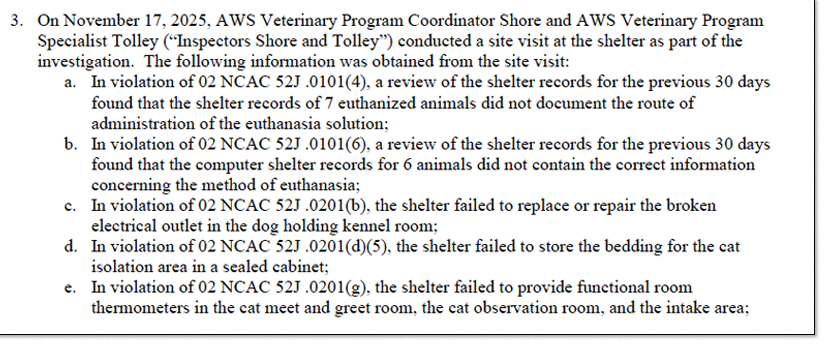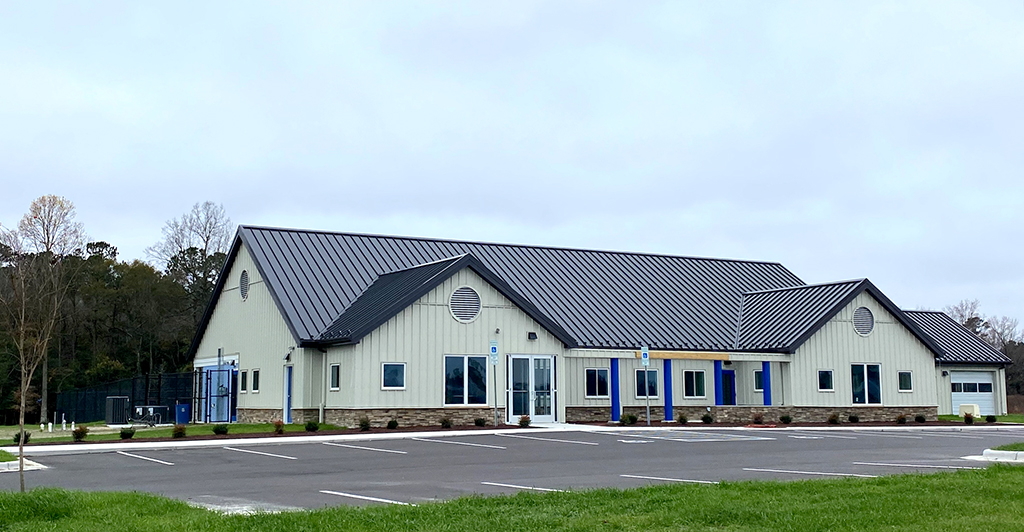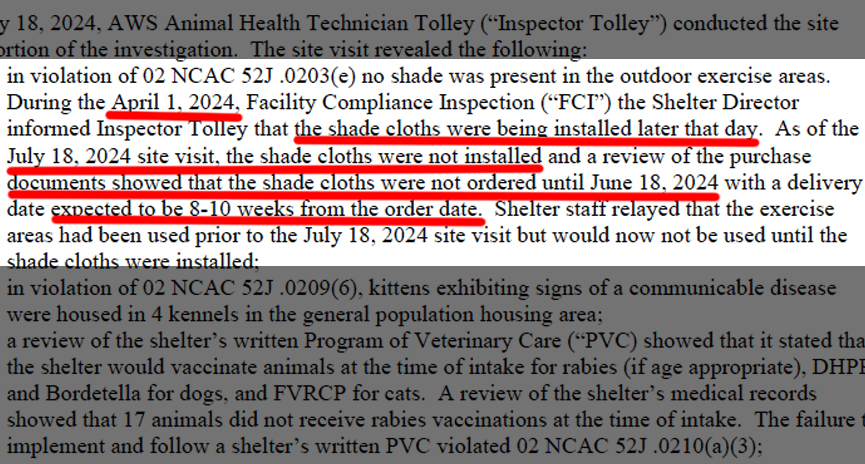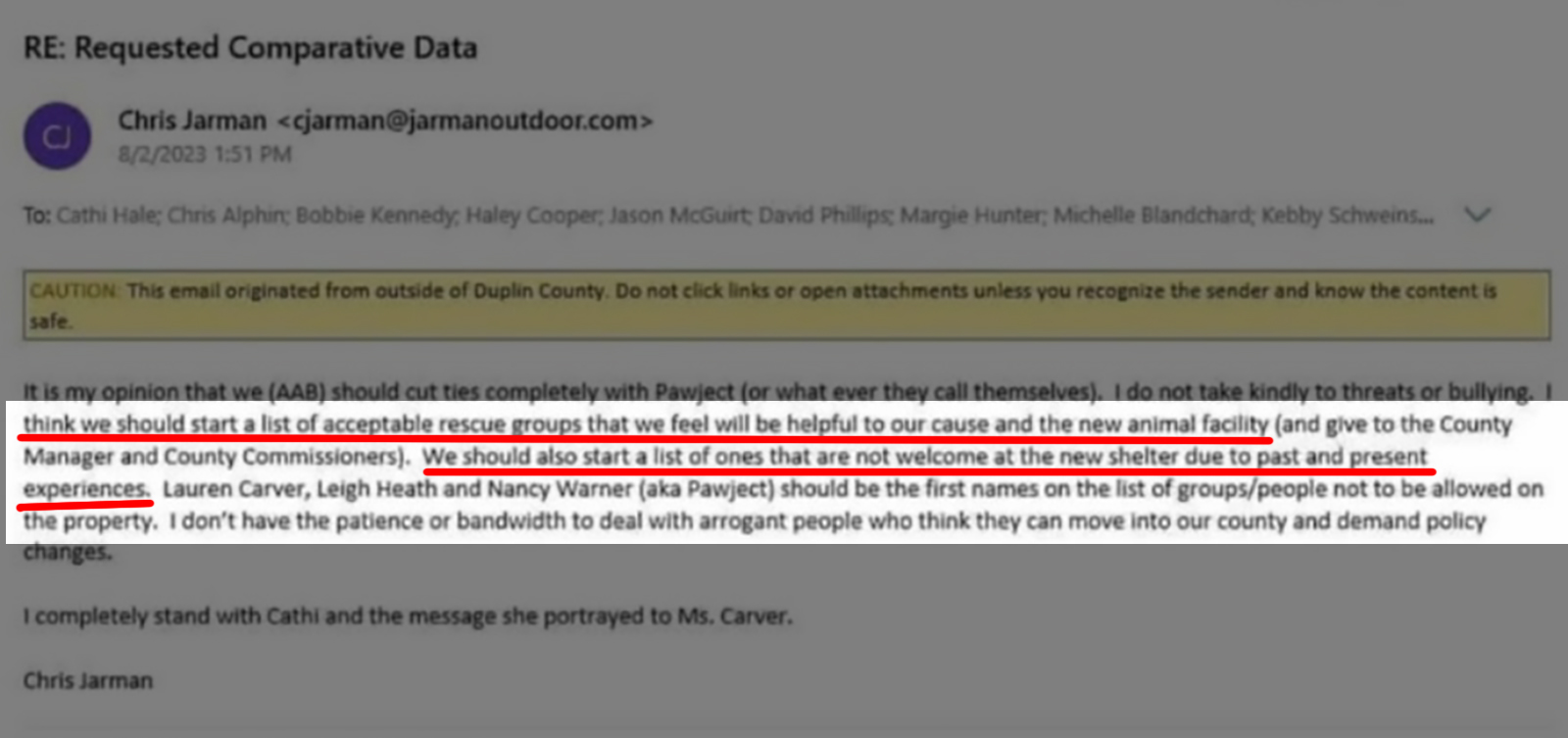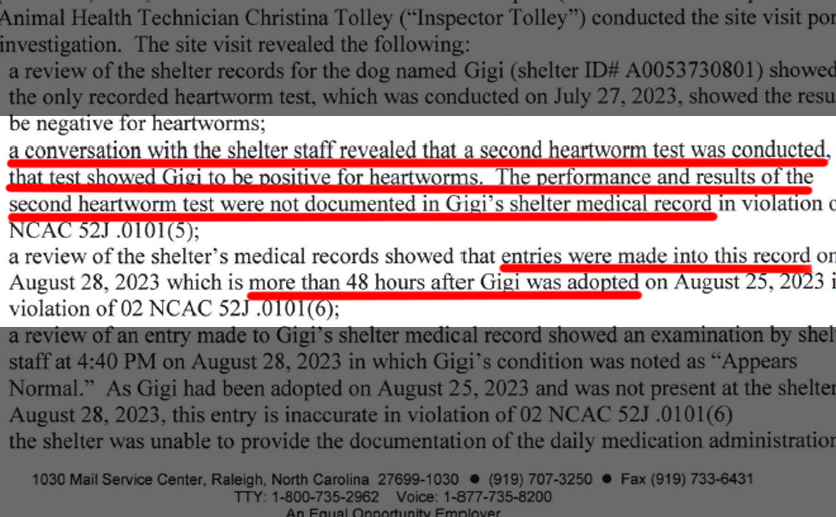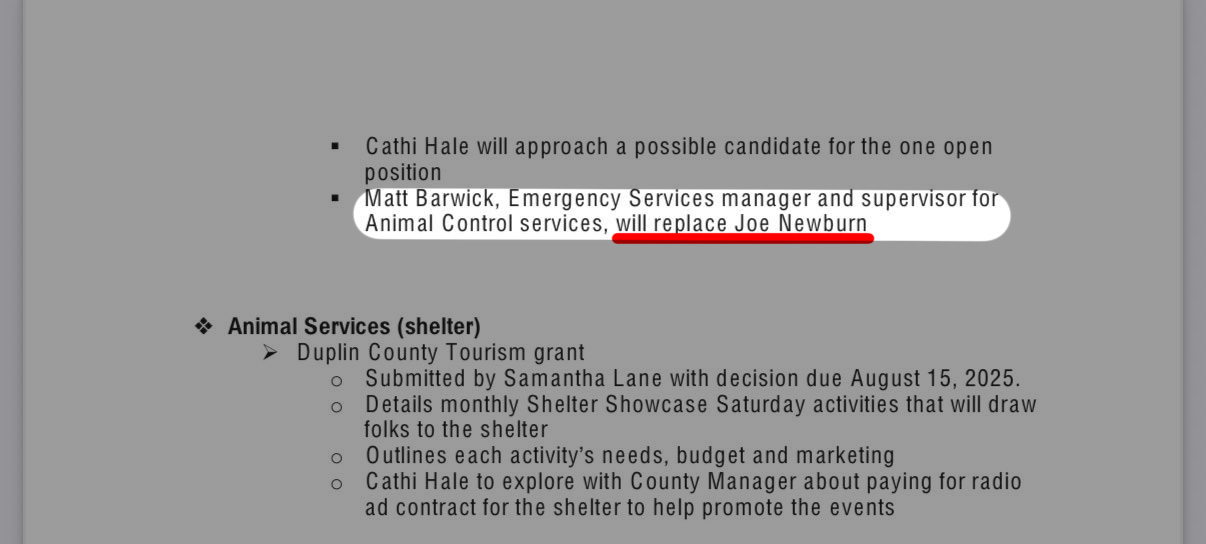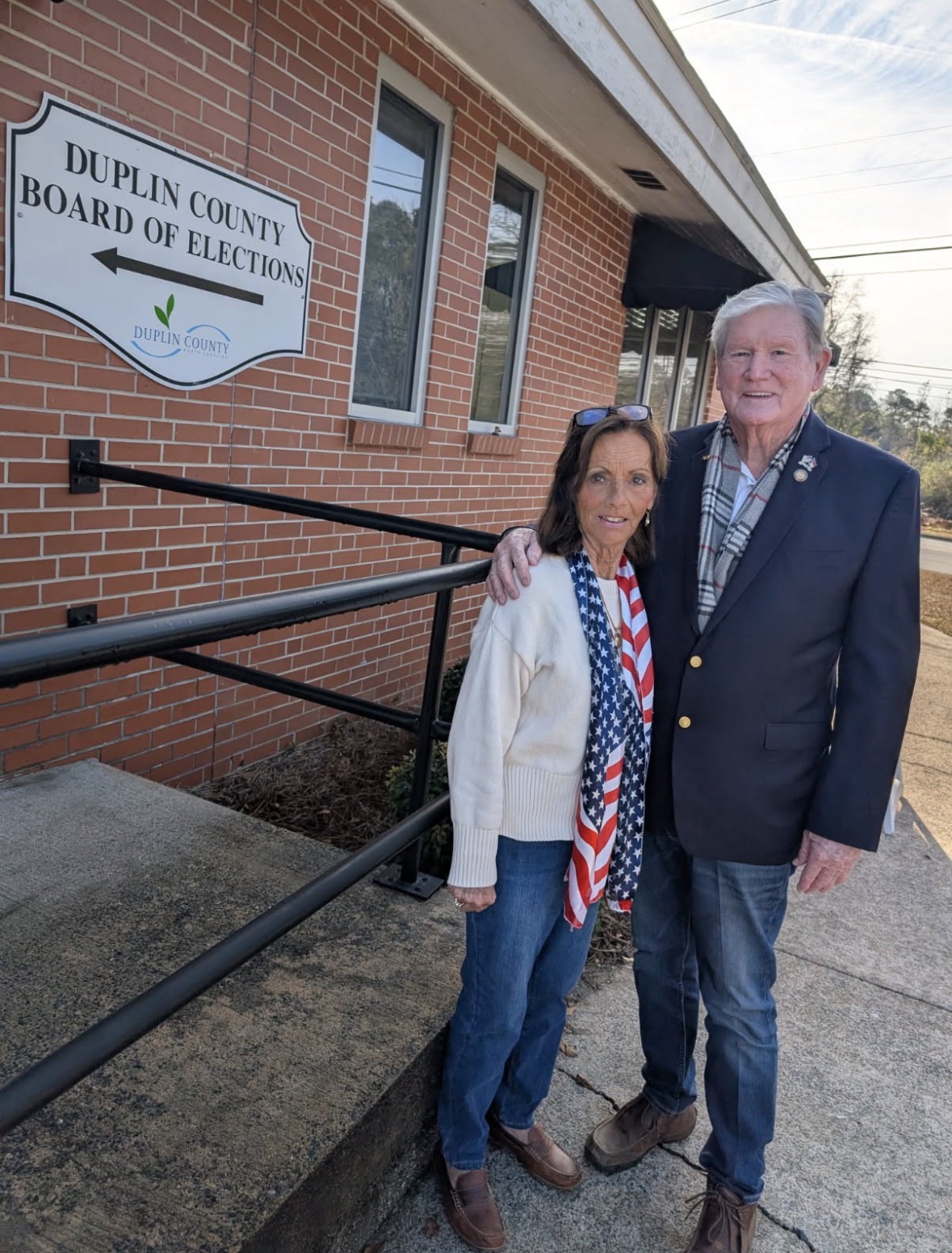State inspectors have cited the Duplin County Animal Services Animal Shelter for multiple violations of North Carolina’s Animal Welfare Act, including incomplete euthanasia records, inadequate supervision of dogs, and failure to provide water to several kittens, one of which died, according to state documents.
On Monday, the North Carolina Department of Agriculture and Consumer Services issued a $1,700 civil penalty to Duplin County based on violations identified during a Nov. 17 inspection by the department’s Animal Welfare Section. The inspection followed a complaint received one week earlier alleging improper practices at the county-run shelter.
According to the state, inspectors reviewed shelter operations, records and animal care practices for compliance with state animal welfare laws.
Inspectors found the shelter failed to properly document euthanasia procedures. Records for seven animals did not include the route of administration for euthanasia solutions, while computer records for six additional animals contained incorrect information about the method used.
Animal care violations included unsupervised dogs in an exercise area lacking a separate perimeter fence and absence of doghouses for outdoor dogs. Inspectors also cited failures to clean litter boxes twice daily, sanitize water bowls with hot water and disinfectant, and document social interaction and enrichment for animals held long-term. In addition to the civil penalty, the shelter received a written warning for other violations, including a broken electrical outlet in the dog kennel room, improper storage of cat isolation bedding, and missing thermometers in multiple cat areas.
Fines included $200 for euthanasia documentation errors, $200 for unsupervised dogs, and $500 for the incident involving water deprivation of kittens. The agency also issued a written warning for sanitation, storage and record-keeping deficiencies. The department noted that continued or repeated violations could lead to fines of up to $5,000 per violation and potential suspension or revocation of the shelter’s registration.
“Our animal welfare section is working with county and shelter administration to improve compliance with the animal welfare act and make things better for the future at the shelter,” said Patricia Norris, Animal Welfare Section director. “Our inspection staff will continue to follow up with shelter staff as they work on improvements.”
Duplin County has 60 days to pay the penalty or file a contested case petition with the North Carolina Office of Administrative Hearings.
Interim County Manager Lisa Hughes confirmed to Duplin Journal that the county is reviewing the notice and has requested for the state to consider a settlement. She said protocols and procedures had already been revised before the notice was received. Hughes did not respond to questions regarding possible disciplinary action following the state’s findings, citing she “cannot discuss personnel matters.”
An AWS spokesperson told Duplin Journal that Duplin County Animal Services requested Veterinary Assessment Training from the Animal Welfare Section. “This request has been granted, and the training should be scheduled soon.”
The AWS spokesperson highlighted that the current violations at the animal shelter didn’t involve veterinary assessments. “In this case the shelter is going above and beyond to get extra training for their staff,” she explained.
The new findings come as critics raise concerns about what they describe as a broader pattern of irregularities at the shelter.
Former county employee Hope Tucker, who reported concerns to the state, told Duplin Journal that a shelter employee routinely mishandled euthanasia procedures. She alleges the said employee was protected by shelter management claiming that they could not afford to lose anyone due to staffing limitations. While those allegations have not been substantiated by state inspectors in the enforcement action issued this week, the department noted a failure to properly document euthanasia procedures.
Tucker alleged that in one instance five dogs were sedated and left unattended long enough to begin regaining consciousness before being re-sedated and euthanized. Tucker also alleged that prior to her termination, at least two dogs were euthanized before completing the state-mandated 72-hour holding period.
One was a female dog named Nanisca, who Tucker says was friendly, healthy and adoptable. She alleges that after an employee euthanized the wrong dog, Nanisca was labeled as aggressive to conceal the error.
Tucker also alleges that Jericho, a dog still within the legally required holding period, was euthanized for “time and space” reasons.
“He was patient, loving, healthy and full of life,” she explained, adding that five dogs had been on the adoption floor for nearly a month past their time, in addition to a few aggressive dogs they had in the back.

Intake documents reviewed by Duplin Journal describe Jericho as friendly and playful.

Gretchen Kozen of Duplin County Animal Advocates, also corroborated in an email sent to Duplin Journal, with shelter documents, that the 10-month-old mixed breed puppy, was euthanized without being made available for adoption.
“I would love to know why he was given shots, dog tested and approved for adoption, only to be killed in four days,” said Kozen. “The euthanasia of the wrong animals needs to stop. Duplin County deserves better than this.”
 Twitter
Twitter Facebook
Facebook Instagram
Instagram
